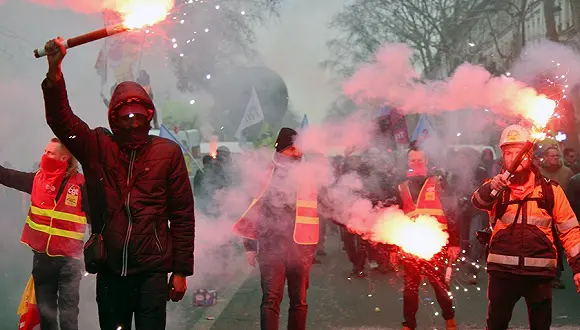The Arab leaders gathered for the 29th Arab Summit in Dhahran, Saudi Arabia last weekend against the backdrop of the Western military intervention in Syria. Saudi King Salman bin Abdul-Aziz Al Saud opened the summit by rebranding it the “Jerusalem Summit”, which to some extent is a big surprise to lots of Middle Eastern researchers.
Apparently, the title and theme of the summit deliver lots of unmentionable messages. Some Syrian observers complained privately that the most influential multilateral platform of Arab countries failed to deliver a strong and unified voice to the rest of the world.
Frankly speaking, the Arab world now has been too divided and too weak to react to the most urgent crisis in the region.
The Syria crisis has been a source of disharmony in the Arab world for years. The Gulf monarchies, such as Saudi Arabia and Qatar, are among the most important and active benefactors of the Syria opposition forces since 2011 in the hope of containing Iran's clout in the region by overthrowing the Syrian government.
Therefore, Saudis, Qataris and Bahrainis publicly endorsed the US, UK and French strike on the alleged Syrian chemical weapons infrastructure.
A member of the Syrian Civil Defence, also known as White Helmets, carries a victim following a reported air strike on a vegetable market in Maaret al-Numan in Syria's northern province of Idlib on October 8, 2017. /VCG Photo
Iraq and Lebanon both have large Shia communities which maintain close ties with Iran and Syria, opposing any foreign intervention on Syrian soil, and calling the West attacks “dangerous”.
Egypt, the former chief of the Arab world, has consented for years Saudi Arab’s takeover of the Arab League due to its growing dependence on the Gulf financial aid to get through its socioeconomic crisis.
Tunisia and Libya have been in a transitional period since Arab Spring in 2011 and have no time to spare for regional troubles.
Algeria, which has an unpleasant history of the Islamist rebellion, is reluctant to support Gulf countries’ adventure, but Alger is too marginalized to the center stage of the Middle East politics.
Morocco, as a remote North African monarchy, expresses merely symbolic support to its Gulf allies but has tried its best to keep a distance from the Syria disaster.
Under such circumstances, the Dhahran summit turned out to be a solo show for “the Saudi Arabia bloc”, calling for an international probe into the use of chemical weapons in Syria and slamming Iran's "blatant interference" in the region.
As for the western airstrike in Syria, the communiqué of the summit only said they “followed the actions of the Western forces”, without a resounding condemnation to the West.
Members of the European Parliament sits with signs that read, 'Hands off Syria' following last week's US-led air strikes on suspected chemical sites in the Syrian capital following an alleged chemical attack in a Syrian town, on April 17, 2018, in the eastern French city of Strasbourg. /VCG Photo
After the summit, King Salman inspected a big military exercise near Dhahran, which includes troops from 22 Arab countries, flexing Sunni Arab muscles to deter “Iranian invasion”. Moreover, merely two days after the summit, the Saudi foreign minister said the Kingdom is holding talks with the US about “sending troops” into Syria to replace the 2,000 American troops currently stationed in the northern part of the country.
If this comes true, the risk of a direct military confrontation between Saudi Arabia and Iranian forces in Syria will grow drastically.
In the foreseeable future, the Arab world will remain divided and let Saudi Arabia call the shots on many regional issues in the name of the Arab League. It means the non-Arab actors in the region such as Israel, Iran and Turkey will still play important roles in almost every hotspot issues.
Proxy wars, foreign interventions, geopolitical rivalry in Syria will continue unless the Arab countries realize that only the solidarity and tolerance can forge a lasting peace in the Middle East.
(CGTN)
 简体中文
简体中文

